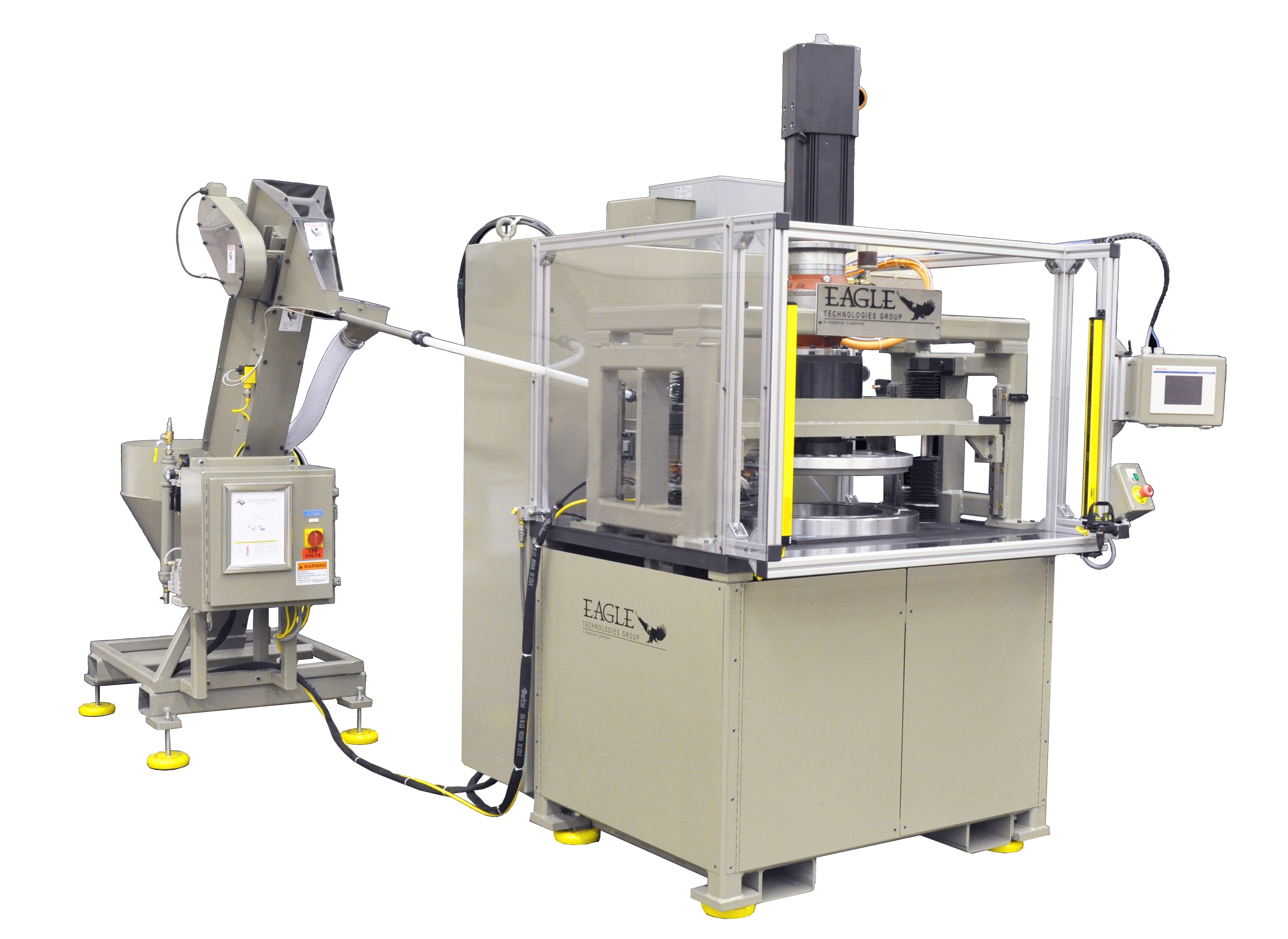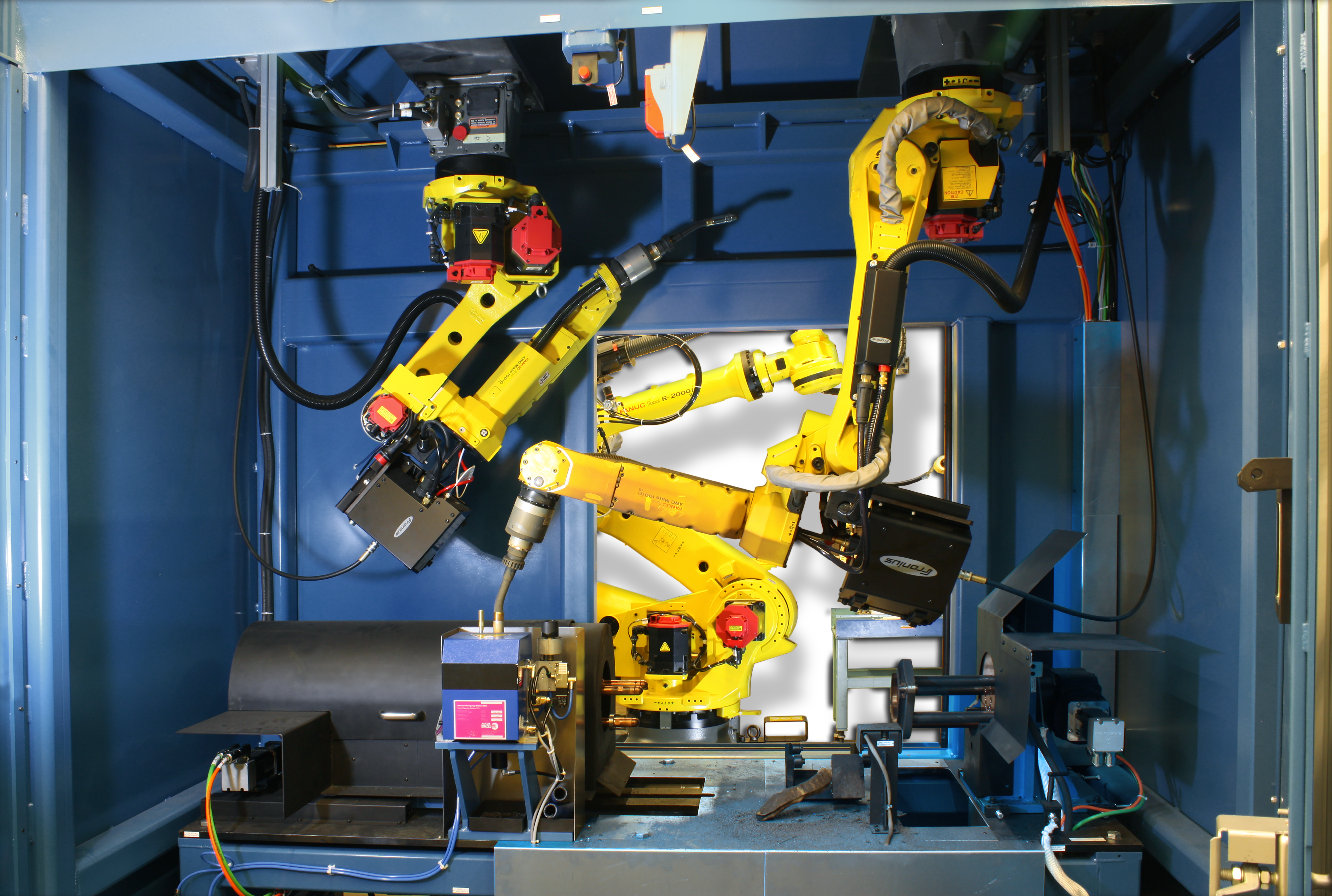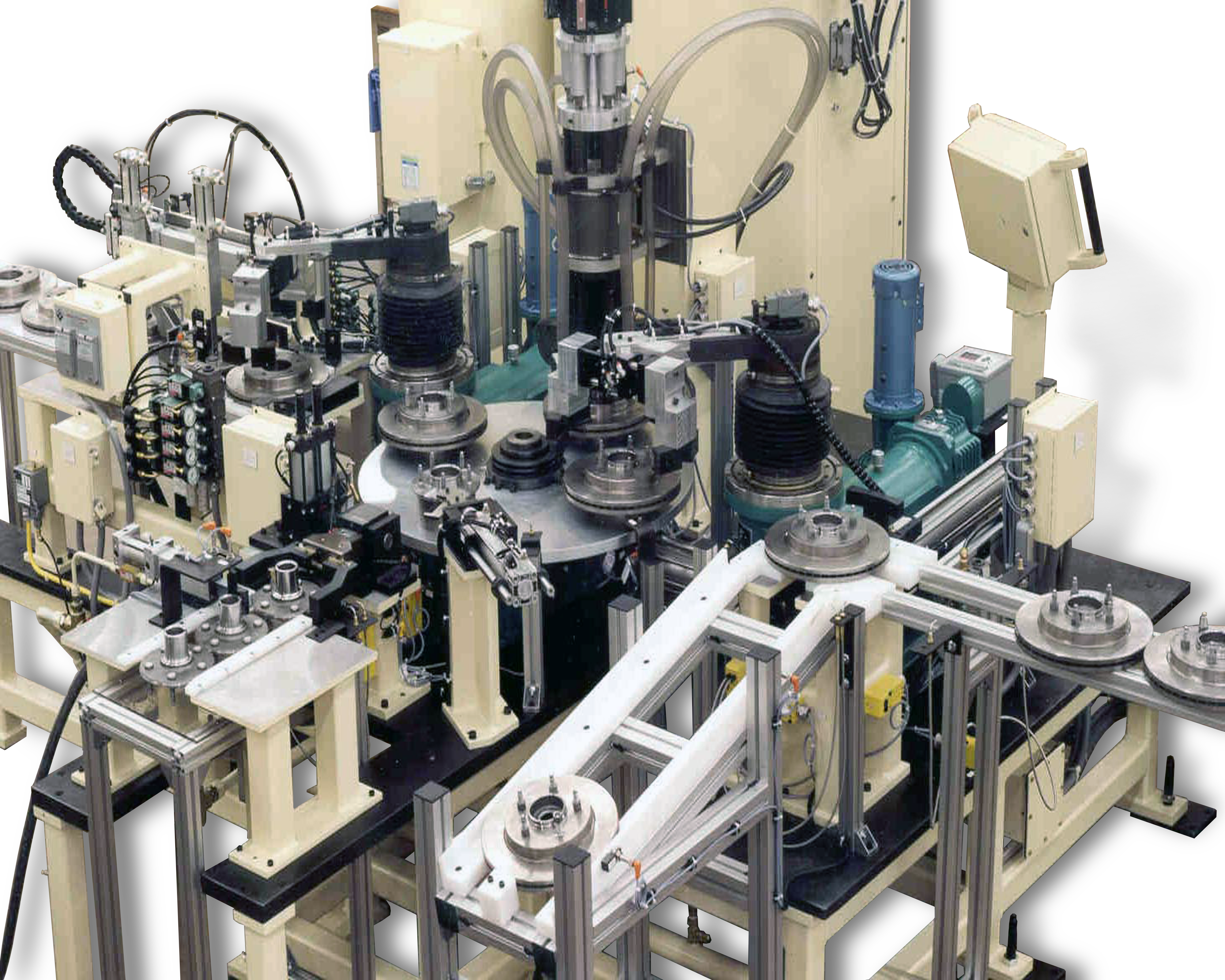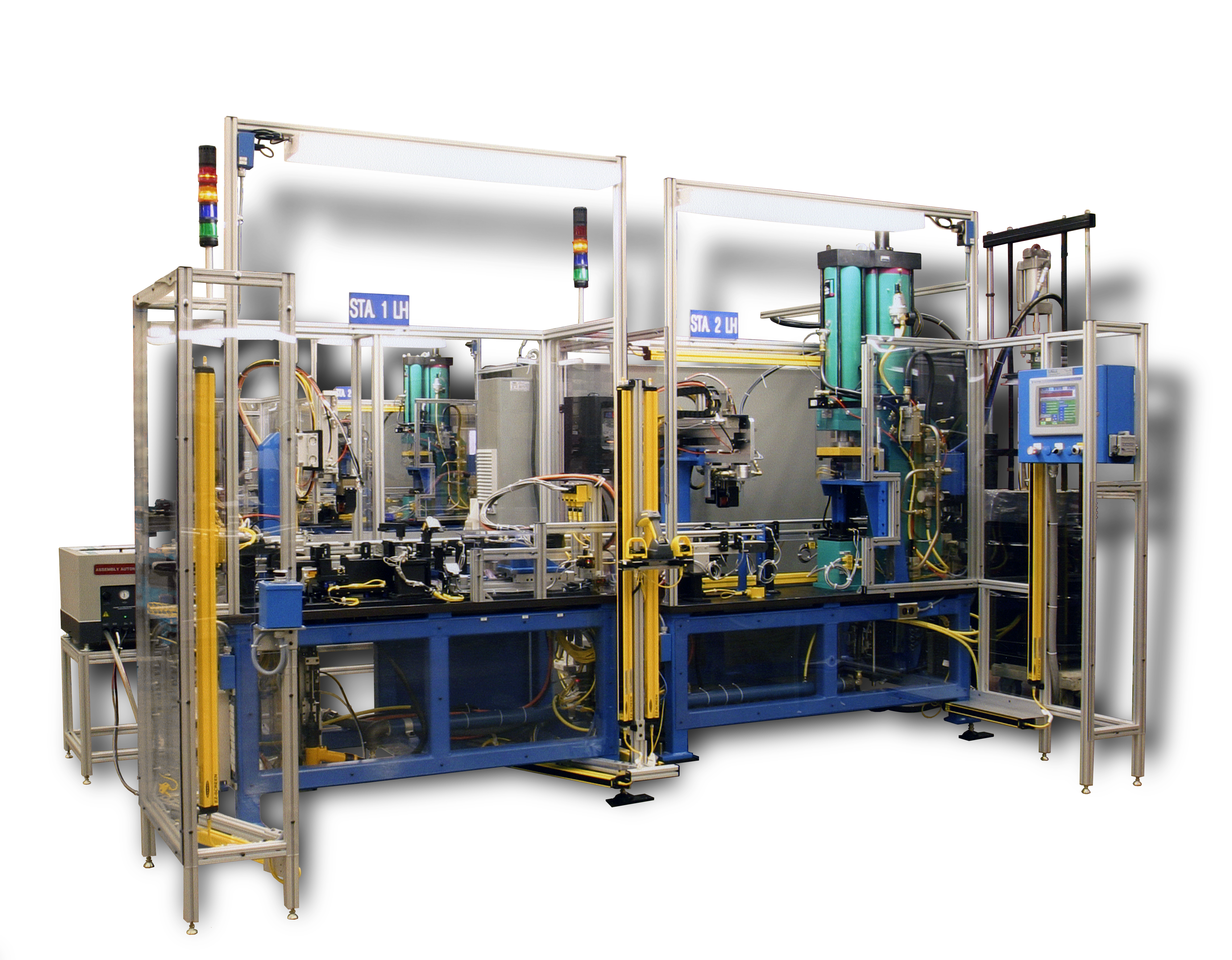
PUTTING THE PIECES TOGETHER IS EASIER SAID THAN DONE.
The methods you chose for assembling your final product can significantly affect the outcome in terms of production efficiency, durability, longevity, and overall quality. We work closely with each of our customers to determine the best material joining processes for their products to ensure optimal results.
LASER WELDING
Whether your application requires welding of metals, plastics, or dissimilar materials Eagle has a solution for you.
Laser welding uses a laser power supply to provide the heat required to melt the parent mat’ls of components for joining, and is a reliable way to provide very controlled and concentrated heat, resulting in less residual heat within the part and heat transferred to the fixturing.
Safety and quality are fully monitorable.
The wavelength of the laser is dependent on the mat’ls being joined.
Laser joining of mat’ls in automated assembly is usually limited to metals and plastics compatible with each other for a durable joint, typically without the addition of joining material.
If attempting to join two dissimilar metals like steel and cast iron, an alloying metal can be introduced to the melt pool via wire feed to provide that compatibility in the heat-affected zone. The wavelength of the laser is dependent on the mat’ls being joined.

FRICTION & SPIN WELDING
Friction or spin welding, as its name implies, uses on friction to melt two components together. It is a reliable way to join materials when, for instance, a component is required with a fluid interior. By fitting the two pieces together, holding one component stationary, and then spinning the other at high speed, the friction generated welds to the two parts together creating a watertight seal.
ROBOTIC WELD CELLS
We are equipped to provide complete robotic weld cells. As your complete automation solution, Eagle integrates all leading robotic solutions, including FANUC, Yaskawa Motoman, Denso, ABB, KUKA robots, and more. Whether your need is a small single robotic work station or a complete robotic assembly line of weld stations – Eagle has the solution for you

VARIOUS WELDING TECHNOLOGIES
We offer a range of welding tools that we can apply to fit specific use cases, including resistance welding, laser welding, plasma welding, ultrasonic welding, and soldering. From simple to complex, we base our solution on your desired outcome to deliver a product that meets precision manufacturing standards.
We truly view our relationship with Eagle as a partnership. The team has been excellent at proactively looking for potential improvement to our existing design. We are growing so rapidly that we must rely on outside help to accomplish our expansion goals on time as wells as address the known issues in our process. Eagle has been key on helping us accomplish both.
Battery Technology Customer
PRESSING
Our pressing machinery ranges from low-pressure hydro-pneumatic applications to high-pressure hydraulic and electro-mechanical applications that offer greater precision and sophistication. We take care to ensure the right process is chosen for your project, and include measurement and testing process to verify product uniformity

FASTENING
Fastening techniques can be as simple as applying a screw or rivet, or as complex as sequential torques and fasteners. We also have experience with a range of adhesive and sealant applications which can be applied using our dispensing technology.

SWAGING
Swaging is a joining process whereby no new materials are added, but instead parts are fitted together and then expanded to secure the materials in place. This is a process typically used in ballizing a camshaft—a process we standardized in 1988, and have been replicating since. Today, more than sixty million camshafts have been produced using our swaging machines—technology we can put to work on your project as well.

